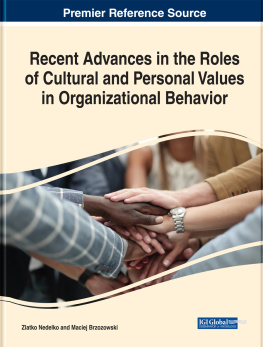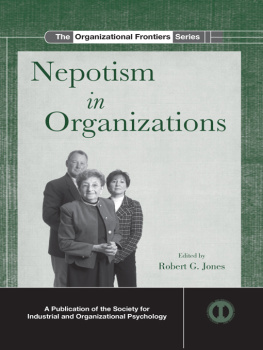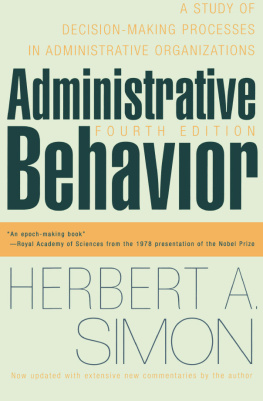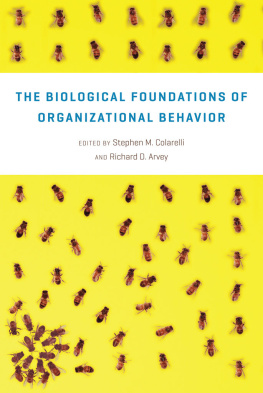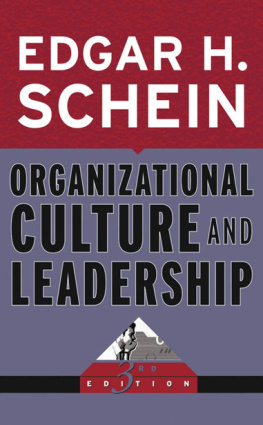Chapter 1
Organisation Culture From Systems Theory of Organisation Perspective in the Era of Copernican Revolution
- Anna Piekarczyk
Pozna University of Economics and Business, Poland
ABSTRACT
The chapter deals with organizational culture from the viewpoint of systems theory of organizations. Organizations are presented as autopoietic systems; relations between organization and individual are discussed as well. The author attempts to define to what extent values and rules characteristic for a given culture can and should be changed. The aim of this chapter is to present the essence of organisation culture from systems theory of organization viewpoint. Steady grounds (core) are an important condition that has to be fulfilled to allow organization to develop and succeed, as this core would help it in keeping balance under difficult circumstances. Hence, the chapter attempts to answer the question of the role played by culture-related factors in organizations and to what extent values and rules, accepted in a given culture, can and should be changed.
INTRODUCTION
Different organization culture issues have been discussed extensively for years. Nevertheless, in spite of deep interest to this phenomenon, it is still not explored completely. Organization culture is a complex subject that extends over the whole environment of individuals who make up organizations. The core of this culture consists of values and rules that precondition all decision-making in organization. These are hard to define, however, it is them that shape and form the entire organization.
These values and rules are often a tabooed topic to discuss in organization, as they are hard to manage they are too soft and cannot be measured (Landau, 2007, p.18). Nevertheless, this social phenomenon - organization culture - is generally considered (together with strategy and structure of organization) to have a decisive impact on its operation, development or failure. Thus, knowledge of organization culture nature, basics and functioning becomes very important (Balz & Arlinghaus, 2007, p.165).
The aim of this article is to present the essence of organization culture from systems theory of organization viewpoint. Steady grounds (core) are an important condition that has to be fulfilled to allow organization to develop and succeed, as this core would help it in keeping balance under difficult circumstances. Hence, the article attempts to answer the question of the role played by culture-related factors in organization and to what extent values and rules, accepted in a given culture, can and should be changed.
BACKGROUND
There is a great variety of theories of organizations. These theories are part of the huge area of social sciences that cover all aspects of private and collective life of human beings (Kieser & Ebers 2014, p. 26).1 Particular topics, subjects and scientific specializations that can be singled out within this area usually do not have clearly set boundaries they overlap and interlace. What they all do have in common is their interest to relationship of organization as a social entity with its members. And systems theory of organization is focused exactly on interrelations between social system and its participants. Models of organizations produced with the help of system approach enable better understanding of logic behind any organizations operation. On this basis it is possible to draw important conclusions and make valuable recommendations that could be applied in practice. The function of theory of organization in relation to roles of other concepts and fields of research is often secondary. Nevertheless, taking into consideration the central role played by organizations in society, the importance of this function should not be underestimated. More and more often organizations replace family structures, tribal or ethnic links and local communities. And, whatever happens good or bad, organizations are almost always part of this. Today they play a crucial role in the context of changes caused by increase of complexity.
Bearing that in mind, researchers, inter alia, G. Probst, P. Gomez (Probst & Gomez 1997, p. 45), F. Malik (Malik, 2014, pp. 21-27), J. Honegger (Honegger, 2008, pp. 27-28), F. Vester, (Vester, 2008, pp.16-20), J. O'Connor, I. McDermott J. (O'Connor & McDermott, 1998, p. 34), W. Sitte, H. Wohlschlaegl (Sitte & Wohlschlaegl 2006, p. 508), D. Meadows (Meadows, 2010, pp.17-18), point to the need of a broader view the system approach to theory of organization and the phenomenon of organization culture.
W. Sitte and H. Wohlschlaegl at the same time note that system approach is not a priori better than other concepts, though it enables a fresh look, better understanding of processes and may lead to new conclusions (Sitte & Wohlschlaegl, 2006, p.510).
System analysis makes it possible to control variability and complexity thanks to knowledge and understanding of interdependencies and links existing between different elements. Thus, it is easier to notice interrelated links and influences, which is particularly important since modern organizations are tied with their environment with an infinite number of such linkages ( Schiepek, Wegener, Wittig & Harnischmacher, 1998, p. 9). Organizations are becoming more and more self-regulating, unpredictable and complex systems (Malik, 2014, p. 21). For this reason, to understand the essence and functioning of these complex systems, besides cause and effect thinking, a broader, all-embracing approach to research of the world is needed. According to the principles of system analysis, an organization can be viewed as a system, a network, to be precise, within which flow and exchange of information and resources take place (von Bertalanffy, 1969, p.36). Particular parts of systems are closely related (Probst & Gomez, 1997, p.26)The main principle of the system approach is: even a minor, insignificant change within one of the smallest subsystems may have a substantial impact on the entire system in the long-term prospective, as a number of various factors exert their influence on it simultaneously (Vester, 2008, p.18). These factors are not isolated, they interact and influence each other across all boundaries set by sciences, and they are feedback links between factors of qualitative and quantitative character (Wilms, 2012, p.21). System analysis is centered on multidimensional research of essential aspects of organization as a system and its functioning (Verster, 2008, p. 19).
Organisation as Autopoietic System
The notion of what an organization is came to existence in the 19th century. N. Luhmann notices that the model for description of what an organization is in that period was a man, an ideal entity (Luhmann, 2000, p. 44). Henceforth an organization, just like an ideal man, should be rational, effective and able to make independent decisions. It should be organized in a hierarchical way. However N. Luhamm emphasizes that modelling on a human entity leads to erroneous conclusions. He thus stipulates to change this way of looking. He notices that an organization is a system. A system which creates and shapes itself. So, every time an organization is analyzed it is necessary to start with a premise that it is a system characterized by a peculiar form of self-organization. An organization is autopoietic.
The word (and hence, the notion) system originates in old Greek and means an entity composed of parts (Simon, 2013, p.16). This is why systems theory of organization basically tries to answer two questions: what elements make up system (or could make it up) and who or what distinguishes (defines) organization as an entity from the rest of the world (Simon, 2013, p.16).

